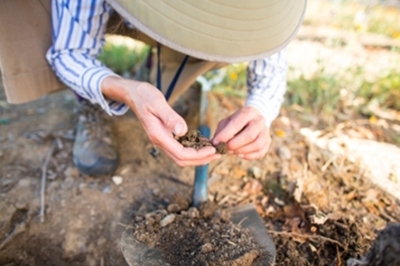Understanding the Drought
Agriculture is a key driver of California’s economy but, unlike other leading industries, its success is beholden to Mother Nature. Global climate change and limited access to water are creating significant challenges for California. In 2015 alone, the drought contributed to estimated losses of over $2.7 billion and nearly 21,000 jobs in California’s agricultural sector.
To address these long-term challenges, UC Riverside environmental scientist Samantha Ying is looking to the land itself for answers.
With a $1.7 million grant from the President’s Research Catalyst Award, Ying and a consortium of scientists from four UC campuses, Lawrence Berkeley National Lab, Russell Ranch Sustainable Agriculture Facility, and three cooperative extension sites are studying the factors that impact soil and the way those factors affect agricultural water use.
Healthy soil that has plenty of carbon, a variety of microbes living in it, and good microscopic structure can absorb and hold more water and nutrients during a wet spell. The scientists will look closely at how these microscopic features affect tomatoes, alfalfa and wheat – three crops crucial for the California economy.
The scientists won’t just be looking down at the ground, though. They will also work closely with the agricultural community, engaging citizens and policymakers to use their research results to design agricultural and water management strategies that will help improve the health of the soil and economy across California.
Explore All Catalyst News about Understanding the Drought
